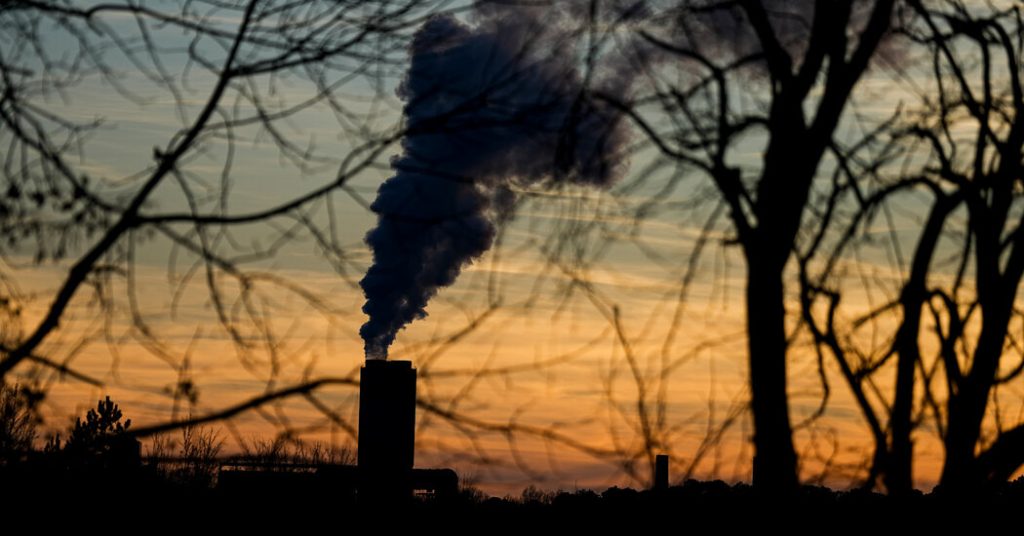The Biden administration has introduced new regulations aimed at drastically reducing pollution from coal-fired power plants, including cutting carbon dioxide emissions and restricting the release of toxins like mercury. These rules are expected to lead to the closure of most of the nation’s remaining coal plants by 2040. The coal industry argues that meeting these standards is impossible, as there is currently no widely available technology to significantly reduce carbon emissions in power plant smokestacks.
The new rules require existing coal plants that will still be operating after 2039 to reduce their greenhouse gas emissions by 90 percent by 2032. Plants scheduled to close before 2039 must reduce emissions by 16 percent by 2030. However, many aging coal plants may shut down before they are required to meet these strict limits, as over 200 coal plants have closed in the past decade and the average age of remaining plants is nearly 50 years old. It is estimated that roughly one quarter of the existing 200 plants are already set to retire within the next five years.
Coal-fired power plants are located throughout the country, with the highest concentrations found in Pennsylvania, Texas, Indiana, Wyoming, Kentucky, West Virginia, and Iowa. Coal usage in the United States has decreased significantly since 1990, when it accounted for half of the nation’s electricity generation. In 2023, coal only produced 16.2 percent of electricity, while renewable energy sources like wind, solar, and hydropower surpassed coal and made up 21.4 percent of power generation. Natural gas remains the largest source of electricity generation, responsible for 43.1 percent.
The new regulations could face challenges from Republican-led states and the coal industry, who are likely to challenge them in court. The Supreme Court has previously limited the E.P.A.’s ability to regulate power plants, and a conservative-leaning court may further impede the administration’s efforts. A potential second Trump administration could also pose a threat to the regulations, as former President Trump has pledged to support fossil fuels and roll back Biden’s environmental policies if re-elected.
Overall, President Biden’s new rules to clean up coal power are a significant step towards reducing pollution and combating climate change. By targeting carbon dioxide emissions and other toxic pollutants from coal plants, the regulations aim to transition the nation away from this dirty source of electricity and towards cleaner, renewable energy sources. While challenges may arise from industry opposition and potential political changes, the Biden administration’s commitment to combating climate change through environmental regulation remains strong.


